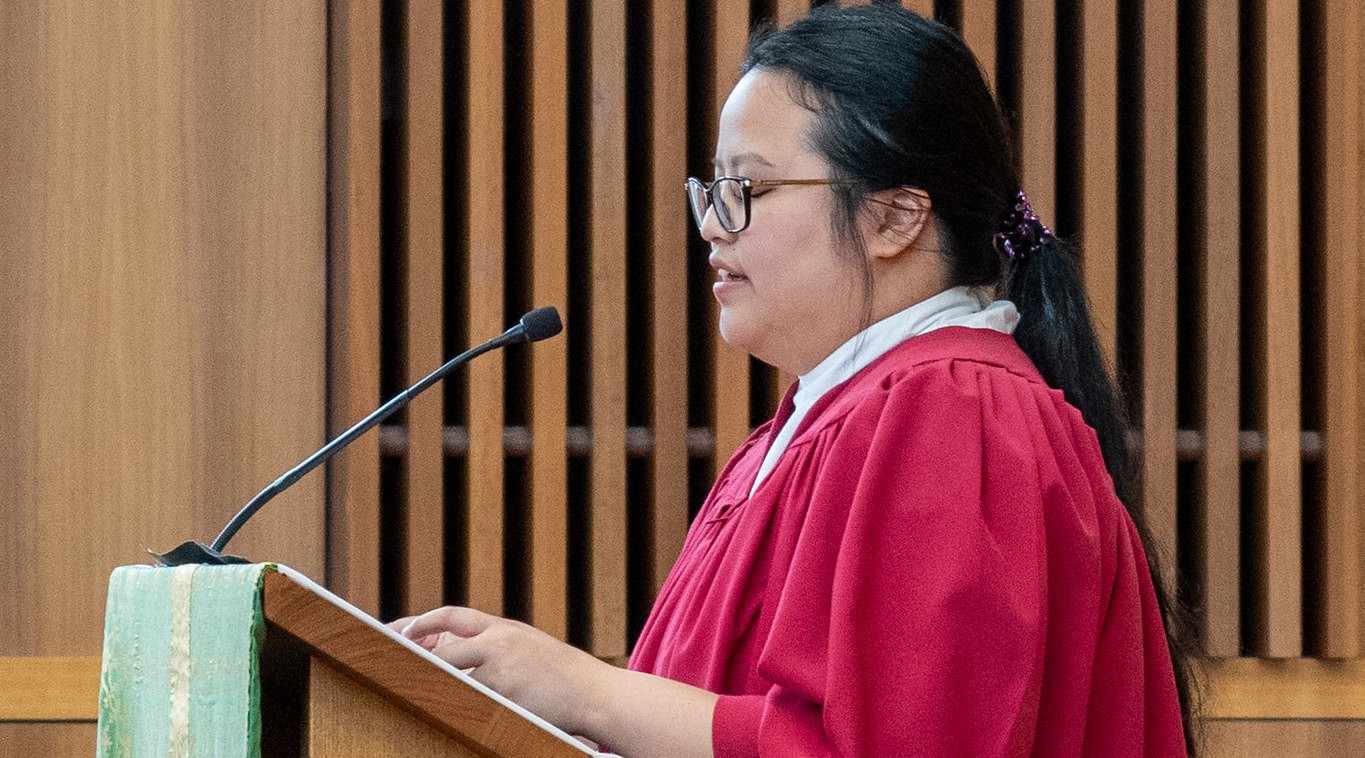The Cantor
Cathy Murrowood

Take care that you believe in your heart what you sing and that you practise what you believe.
This ancient 5th century blessing for psalmists echoes our understanding of the ministry today: it exhorts the cantor to be a disciple first, and then a music minister.
The revision of the rites following the Second Vatican Council restored this ancient ministry. Since then, many singers have come forward. Some shy away from being called cantors but most would agree that Singers need basic skills in order to communicate and sing with beauty and consistency. Music ministers though need more than these skills.
An active faith and a desire to serve the prayer of those who assemble for worship are essential qualities for the cantor in Catholic liturgy. A love of the scriptures, particularly the psalms and canticles, and a reverence for the liturgy itself impel the cantor to do the best job possible, taking practical steps to train to be more effective music ministers.
While choirs lead and embellish the assembly's song, the cantor has a specific role in Catholic worship. The cantor enables a parish to sing the liturgy more easily, especially prayer forms such as litanies, responses, acclamations, psalms, metric hymns, songs and plain chant which are part of the liturgical repertoire. This gives music greater potential to be wedded to the rites. That is why the major rites of the Church all recommend that a cantor be available to lead sung prayer.
Perhaps one of the most significant roles of the cantor is that of psalmist. The psalms are religious poems of great beauty and draw on a range of human emotions. They are a favoured musical prayer form in the liturgy, especially in the Liturgy of the Word, encouraging the assembly to respond to the readings in prayer.
Cantors may also assist the assembly by taking on other roles such as teaching new music before the liturgy begins. They might also use simple gestures, rather than the voice during the liturgy (this is often called song leading) especially when the rite or music is unfamiliar to some of the people. Here are some useful tips for beginning and experienced cantors.
* Prepare well. Pray the words, learn the music, and practise by yourself as well as with your accompanist. Give yourself extra time to learn a new piece and do not let complacency creep in when you know a piece well. Mistakes are part of the human condition but avoid being ill-prepared.
* Excessive nerves can be controlled. With patience, perseverance, good preparation and support, scores of cantors testify that the ministerial role will eventually become more central than any uncontrollable anxiety. Begin with small parts and gradually gain more experience before attempting to sing the responsorial psalm from the ambo. Avoid singing music that is too difficult to manage.
* Be conscious of the requirements of the liturgy and how to work with others. Collaborative people who understand the rites make better ministers. Since music is so important in liturgical celebrations, musicians especially need to be collaborative. Cantors need to work effectively with other musicians as well as liaise with other ministers and members of the assembly.
* Acquire basic skills in reading music. Reading music is actually easier than reading English. This valuable skill will let the cantor avoid relying entirely on CDs and tapes to learn music. Adult education courses, piano lessons, musician friends and music books can be helpful – simply work within your limitations. Being able to match accurately notes and rhythms with what others are playing and singing is such a help for a cantor.
* Avoid scooping. Scooping up to notes is often done unconsciously and is habit forming. It unfortunately draws more attention to the singer than the prayer. Placing the voice in the middle of the first note of a phrase is a skill that is easily learnt and an accurate cantor enables the assembly to respond more confidently.
* Seek honest advice from someone you trust about how you sing. Supported breathing, correct stance, the ability to sing in tune and clear diction are essential elements of good singing. Pinpointing areas that need attention is hard to do yourself.
* The assembly's voice is more important than your voice. The most beautiful liturgical music is the assembly in full voice. Ayoid singing 'over' them, especially if you have a microphone. Encourage the assembly to listen to each other by singing more softly during the people's refrains, acclamations and responses.
* Leading sung prayer involves performing but is not a performance. Leading from the front enables better communication between cantor and assembly. Eye contact, gestures and the words that are sung come primarily from a person of faith who is a member of the assembly, rather than a performer. Try to 'grow' the silence between the readings for this is part of the people's response.
* Not all singers make good cantors. Be aware that the assembly, in good charity, finds it difficult to respond well to some voices. This awkwardness has no simple solution, especially where cantors are scarce. More careful discernment of volunteers is sometimes useful as well as ongoing formation and evaluation.
* Seek opportunities for ongoing formation (individual and group). Formation for music ministers is lifegiving. Learn more about your ministry, your voice and the liturgy and try to build your repertoire. Try to include settings of the Common Psalms which can be substituted for a period in the Liturgical Year.
This article was originally published in Liturgy News Vol 36(3) September 2006. Reprinted with permission.
